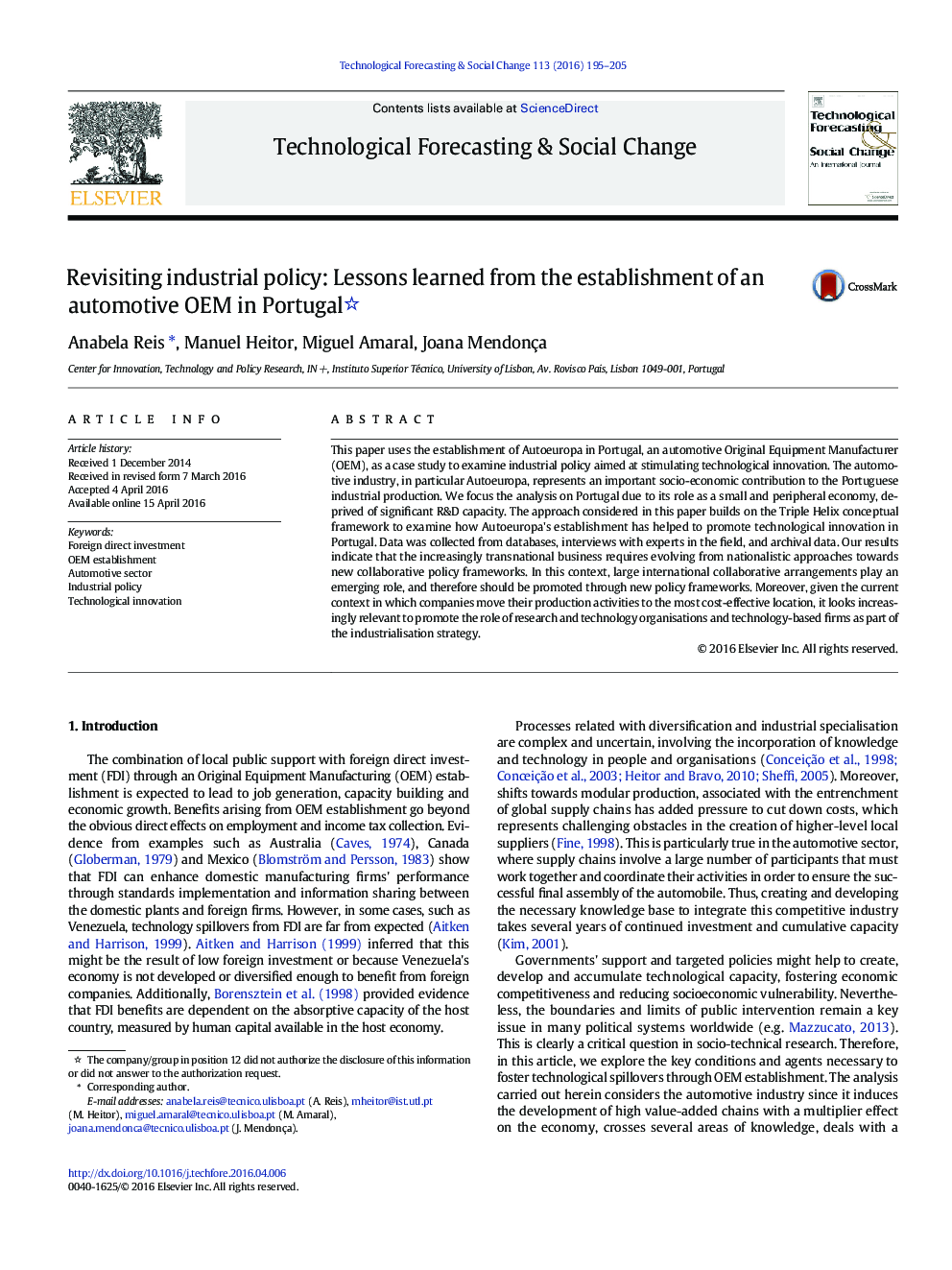| Article ID | Journal | Published Year | Pages | File Type |
|---|---|---|---|---|
| 5036961 | Technological Forecasting and Social Change | 2016 | 11 Pages |
â¢Need for new regulatory frameworks towards industrialisation in Southern Europeâ¢Builds on the Triple Helix framework of university-industry-government relationsâ¢Promote forms of FDI that break National Innovation Systems' traditional boundaries
This paper uses the establishment of Autoeuropa in Portugal, an automotive Original Equipment Manufacturer (OEM), as a case study to examine industrial policy aimed at stimulating technological innovation. The automotive industry, in particular Autoeuropa, represents an important socio-economic contribution to the Portuguese industrial production. We focus the analysis on Portugal due to its role as a small and peripheral economy, deprived of significant R&D capacity. The approach considered in this paper builds on the Triple Helix conceptual framework to examine how Autoeuropa's establishment has helped to promote technological innovation in Portugal. Data was collected from databases, interviews with experts in the field, and archival data. Our results indicate that the increasingly transnational business requires evolving from nationalistic approaches towards new collaborative policy frameworks. In this context, large international collaborative arrangements play an emerging role, and therefore should be promoted through new policy frameworks. Moreover, given the current context in which companies move their production activities to the most cost-effective location, it looks increasingly relevant to promote the role of research and technology organisations and technology-based firms as part of the industrialisation strategy.
